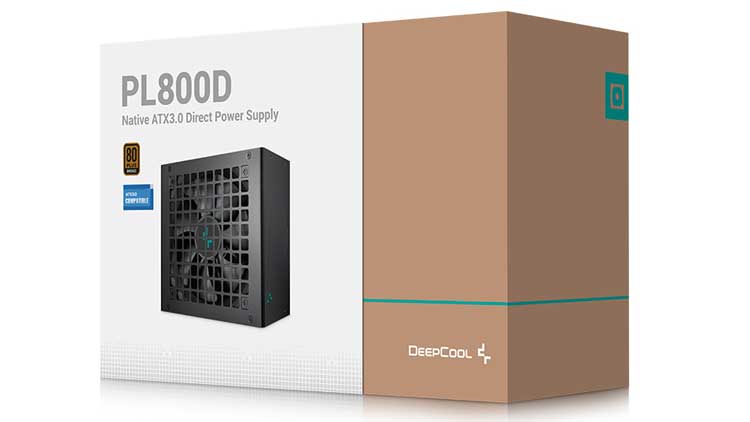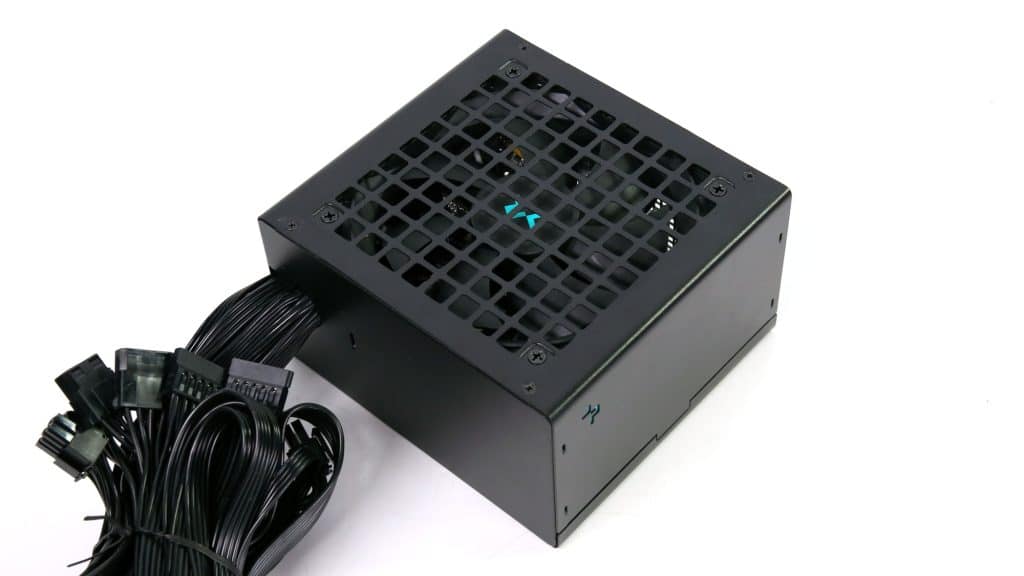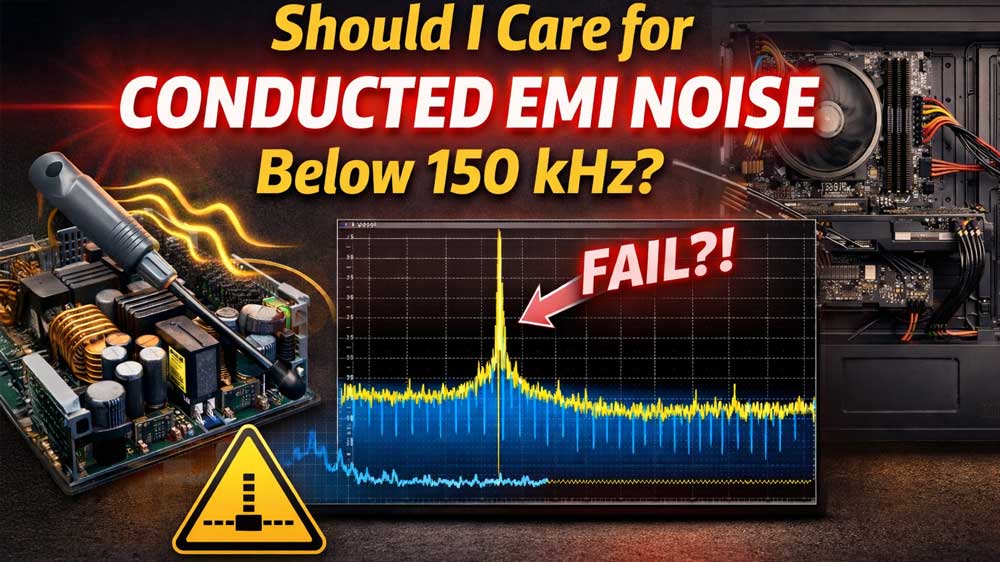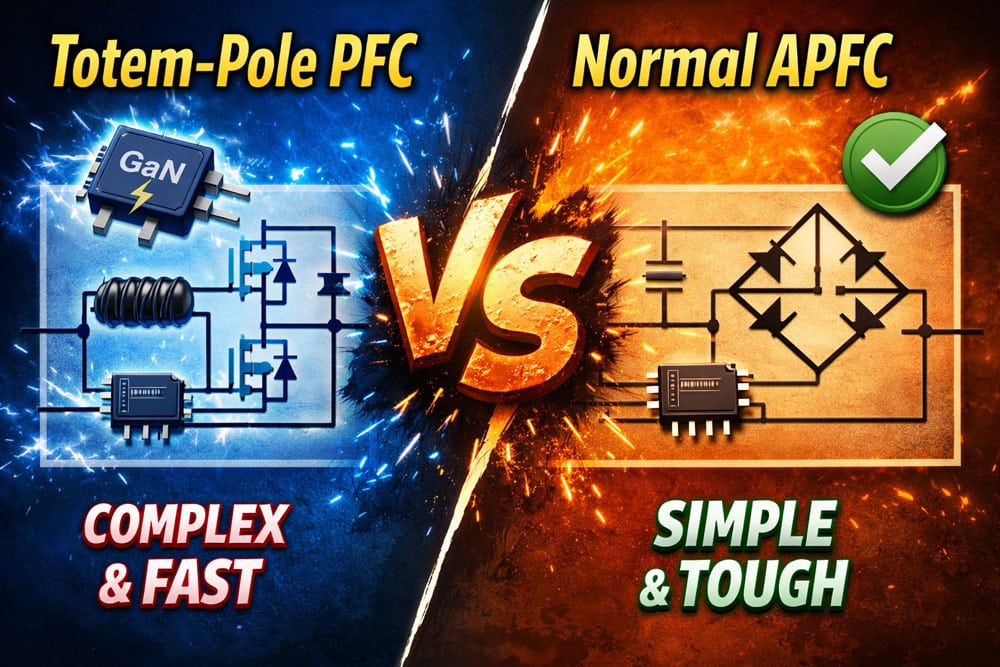Epilogue
The time has come for affordable ATX v3.x PSUs, and Deepcool has initiated this category with the PL-D series. These units are based on an older platform, with a double-forward topology on its primary side, and don’t have any modular cables to keep the cost down. The soldering quality is good, but the parts are not from known manufacturers to save money. Still, Deepcool seems to have faith in the reliability of this platform, or else it wouldn’t support it with a five-year warranty.
Some might frown upon the view of the Chengx capacitors on this unit’s primary and secondary sides. Still, the quality and performance of the Chinese caps have been tremendously improved in the last few years. Chengx also makes caps for several big names in the industry, including known Japanese capacitor brands. If you want facts and not just rumors about capacitor performance, look at my evaluation tests.
The PL800D passed all of my ATX v3.1 transient response tests successfully. It has a longer than 17ms hold-up time, and its load regulation is tight at 12V. Moreover, ripple suppression is decent, and the 12V rail keeps its voltage at a reasonable level, given the platform’s design and cost, under increased transient loads. The average efficiency is not high, as shown by the unit’s Silver Cybenetics rating. I rarely encounter Silver-rated products, with most ATX v3.x compliant PSUs belonging to Gold and higher categories. But it all has to do with keeping the cost low in this PSU, which performs well in this section. I couldn’t find a US price, but Deepcool mentions a €79 price tag in Europe, which is low enough for an 800W, Silver-rated, in the Cybenetics scheme, ATX v3.1 PSU.
Another thing I want to mention here is the ATX spec that this unit is compliant with. Although Deepcool mentions ATX v3.0, since it uses native cables, it automatically meets the ATX v3.1 requirements. There is no change in the 12VHPWR or 12V-2×6 cable; only the 12+4 pin headers are changed on PSUs that have them on their modular panels and the graphics cards. This means that PSUs using a pair of 8-pin sockets or the ones with native cables, which already meet the ATX v3.0 requirements, are automatically upgraded to ATX v3.1.
Assuming that the PL800D will have a price tag of 70-75 dollars in the US market, given the €79 price tag in the EU market, it will be one of the most affordable ATX v3.x PSUs available. If Deepcool manages to push its price below 70 dollars, which is not that easy, it will attract more buyers.
To give you an idea of the prices of the 750W competition:
- Corsair RM750e: $100
- MSI MAG A750GL PCIE 5: $89
- Segotep 750W: $80
- be quiet! Pure Power 12 M 750W: $90
- Seasonic Focus V3 GX-750: $90
- GAMEMAX 750W: $76
- MSI MAG A750BN PCIE 5: $85
The Gamemax 750W has an excellent price, given that it is fully modular and Gold-rated, but I am not sure about the support that its brand offers and the reliability of this platform. The second most affordable is the Segotep 750W, which achieves a top transient response. The MSI MAG A750BN follows at 85 dollars.
750W ATX v3.x PSU reviews:
- 1st Player NGDP 750W PSU Review
- XPG Core Reactor II VE 750W PSU Review
- Enermax Revolution D.F.12 750W PSU Review
- Cooler Master GX III 750W ATX v3.0 PSU Review
- XPG KYBER 750W ATX v3.1 PSU Review
- DeepCool PN750D ATX v3.1 PSU Review
Before investing in a new power supply, read my Best ATX v3.x PSUs article to check all alternative PSU offerings. You help me a lot by using my affiliate links, which don’t increase the product’s price. I get a commission from Amazon every time you do it, which can make a difference for me, especially now that I am on my own, working exclusively for my media and not for someone else.
- Budget-friendly price
- Delivered full power at 47°C
- ATX v3.1 and PCIe 5.1 ready
- Good soldering quality
- Low inrush currents
- Long hold-up time
- Conservatively set 12V OCP and OPP
- Highly efficient 5VSB rail
- Low standby power
- Alternative Low Power Mode (ALPM) compatible
- HDB advertised fan (from an unknown brand)
- Enough cables and connectors, including a high-power one (12+2 pin, 600W)
- Five-year warranty
- OCP triggering points need tuning on the minor rails
- Not competitive overall performance
- Noisy operation
- Outdated platform
- Not efficient design, especially at light loads
- APFC converter needs tuning for higher PF readings
- Mediocre transient response, especially at 3.3V
- Loose load regulation at 3.3V
- ATX cable should be 600mm long
- Short distance (105mm) between peripheral connectors




